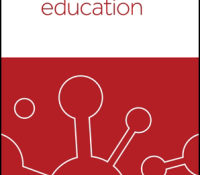tandfonline.com – “Look at them! They all have friends and not me”: the role of peer relationships in schooling from the perspective of primary children designated as “lower-attaining”
tandfonline.com har udgivet en rapport under søgningen “Teacher Education Mathematics”: ABSTRACT ABSTRACT This paper explores the peer relationship experiences of 23 primary-school children who had been designated as “lower-attaining”. It is written against the backdrop of the mental health crisis among young people in Britain. Using John Macmurray’s principles of equality and freedom as underpinning positive personal relationships, it investigates how “lower-attaining” children experience their peer relationships in a climate where attainment in mathematics and English is politically prioritised over the nurturing of positive relationships. We drew on the recent literature pertaining to peer relationships in general; and peer relationships among “lower-attainers” in particular. We build on the assumption that positive personal relationships support creative learning and high attainment. Using 107 extended individual and paired/triad activity-interviews as well as lesson… Continue Reading

